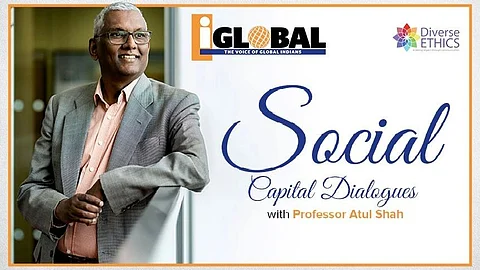

India is home to many very generous and visionary leaders, often overlooked. Tata, one of the world’s largest multinationals is run by a charitable foundation and its pioneers are Parsees. In Dharmic culture, financial success often comes with a sense of obligation and responsibility. The Tatas practiced corporate social responsibility long before it became a slogan and hypocritical spin machine.
We can give many other names like the Hindu family Jindals who have endowed several health and education institutions including a world famous Jindal University; the Azim Premji foundation endowed by an Ismaili family with a huge educational vision and mission; or the Birlas or a recent endowment by Jain entrepreneur Gautam Adani of Rs 60,000 crores on his 60th birthday through the Adani Foundation.
This generosity draws from a tradition of benevolence and giving which was also practiced by ancient Kings and Queens who saw themselves as guardians of their citizens well-being. Business was not seen as separate from society or nature and often done with purpose and meaning to drive India’s development and growth.
MORE LIKE THIS…
Recently, I was advising Oxford University’s Said Business School about Dharmic philosophy and they chose to do a detailed case study of Jain investment bankers Nemish Shah and Vallabh Bhanshali who founded India’s first Liberal Arts University, FLAME University based in Pune. Theirs was a $100 million donation and when probed they explained that there is a limit to the accumulation of money and they see their charity as a duty to repay society for their success. You can read the full Oxford case study on the link below.
Such practices give us both leadership and hope. People sometimes argue that Indians are greedy capitalists but there are many western business leaders who do not believe in giving and are obsessed by greed. In Dharmic wisdom wealth is gained through ‘punya’ (merit from past lives) and this brings humility among the wealthy. My research shows that even their methods of business are based on character, honour, trust and relationships.
Wealth and inequality have been a reality throughout human history so we should not critique the rich just because they are wealthy. Often in India success is measured not by how much you have made but how much you have shared. Hundreds of thousands of people without wealth give freely of their time and expertise very patiently and generously in the same spirit. There is a deep culture of volunteering and sewa. They ought to be equally recognised in the same success tables.
MORE LIKE THIS…
This spirit of charity is also huge among Non-Resident Indians living abroad who have significant compassion for their motherland. They also give generously to causes in their own host countries. Such character and conduct allows money to circulate and flow rather than get blocked by accumulation distrust and insecurity. It also shows a 21st century leadership culture and character which is far from being fundamentalist or discriminatory.
Professor Atul K. Shah [@atulkshah] teaches and writes about Indian wisdom on business, culture and community at various UK universities and is a renowned international author, speaker and broadcaster.
Info: Case Study